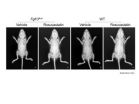(Press-News.org) HOUSTON – (Sept. 17, 2014) – The shifting regional geopolitics of the Middle East have created new opportunities for the Persian Gulf states to engage in Arab-Israeli conflict resolution, according to a new paper from Rice University's Baker Institute for Public Policy.
"The Gulf States and Israeli-Palestinian Conflict Resolution," authored by Kristian Coates Ulrichsen, proposes a set of policy recommendations on how the Gulf states can engage with regional and international partners to create new pathways for action and cooperation. Ulrichsen is the fellow for the Middle East at the Baker Institute, who specializes in the political, economic and security trends of the Middle East and the changing position of Persian Gulf states in the global order.
"The late August announcement of a cease-fire to end the latest round of violence in Gaza offers an opportune moment to devise fresh approaches to Arab-Israeli conflict resolution," Ulrichsen said. "Moreover, the changing landscape of Middle East politics provides multiple points of entry for discrete, issue-specific and technocratic-led cooperation among all principal regional states. Above all, the emergence of the Gulf states as proactive regional actors makes it imperative for international actors and multilateral agencies to identify ways of working together in pursuit of a common objective."
There is little to no formal state-to-state contact between the six Gulf Cooperation Council (GCC) states -- Bahrain, Kuwait, Oman, Qatar, Saudi Arabia and the United Arab Emirates (UAE) -- and Israel; geographically, the Gulf states are not, and have never been, "frontline states" in the Arab-Israeli dispute, Ulrichsen said. His paper documents a range of mechanisms that can, and in fact already do, constitute a practical basis for involving the Gulf states in regional mediation and conflict resolution initiatives.
These range from the projection both of direct and indirect influence over the various Palestinian factions to quiet cooperation on technocratic and "nonpolitical" issues such as energy and water. Moreover, the Saudi proposed Arab Peace Initiative of 2002 remains the most comprehensive and credible plan to bring about a durable settlement of the Israeli-Palestinian conflict, Ulrichsen said. In the 12 years since the plan was unveiled, a realignment of regional geopolitics has created a convergence of interest between most GCC states and Israel over issues such as the Muslim Brotherhood, violent extremist groups such as the Islamic State (ISIS/ISIL), Iran and Arab Spring challenges to the status quo. "GCC states' responses to the political upheaval combined a more expansive capability with greater policy intent and positioned them at the heart of regional policymaking as the Middle East and North Africa emerge unsteadily from the Arab Spring," Ulrichsen said.
He concluded: "As regional powers with a wide array of political and economic leverage, the Gulf states can play a significant role that goes beyond the provision of humanitarian assistance in conflict-afflicted environments to encompass a range of innovative conflict resolution tools as well."
INFORMATION:
For more information or to schedule an interview with Ulrichsen, contact Jeff Falk, associate director of national media relations at Rice, at jfalk@rice.edu or 713-348-6775.
Related materials:
Paper: http://bakerinstitute.org/media/files/files/20f674a4/CME-pub-PolicyReport61.pdf.
Ulrichsen bio: http://bakerinstitute.org/experts/kristian-coates-ulrichsen.
Ulrichsen on Twitter: http://twitter.com/Dr_Ulrichsen @dr_ulrichsen.
Follow Rice News and Media Relations via Twitter @RiceUNews.
Founded in 1993, Rice University's Baker Institute ranks among the top 15 university-affiliated think tanks in the world. As a premier nonpartisan think tank, the institute conducts research on domestic and foreign policy issues with the goal of bridging the gap between the theory and practice of public policy. The institute's strong track record of achievement reflects the work of its endowed fellows, Rice University faculty scholars and staff, coupled with its outreach to the Rice student body through fellow-taught classes — including a public policy course — and student leadership and internship programs. Learn more about the institute at http://www.bakerinstitute.org or on the institute's blog, http://blogs.chron.com/bakerblog.
Persian Gulf states have new role to play in Israeli-Palestinian conflict resolution
2014-09-17
ELSE PRESS RELEASES FROM THIS DATE:
Why bioethics literacy matters
2014-09-17
From accessible and affordable health care to reproductive technologies, the justice and well-being of our society depend on the ability of people to identify key issues, articulate their values and concerns, deliberate openly and respectfully, and find the most defensible ways forward. But what are the best educational practices to support these societal conversations?
The Hastings Center and the Presidential Commission for the Study of Bioethical Issues have teamed up to publish a series of essays to highlight the best practices in teaching bioethics and to identify ...
Smallest known galaxy with a supermassive black hole
2014-09-17
SALT LAKE CITY, Sept. 17, 2014 – A University of Utah astronomer and his colleagues discovered that an ultracompact dwarf galaxy harbors a supermassive black hole – the smallest galaxy known to contain such a massive light-sucking object. The finding suggests huge black holes may be more common than previously believed.
"It is the smallest and lightest object that we know of that has a supermassive black hole," says Anil Seth, lead author of an international study of the dwarf galaxy published in Thursday's issue of the journal Nature. "It's also one of the most black ...
Gut bacteria, artificial sweeteners and glucose intolerance
2014-09-17
Artificial sweeteners, promoted as aids to weight loss and diabetes prevention, could actually hasten the development of glucose intolerance and metabolic disease; and they do it in a surprising way: by changing the composition and function of the gut microbiota – the substantial population of bacteria residing in our intestines. These findings, the results of experiments in mice and humans, were published today in Nature. Among other things, says Dr. Eran Elinav of the Weizmann Institute's Immunology Department, who led this research together with Prof. Eran Segal of Computer ...
New branch added to European family tree
2014-09-17
The setting: Europe, about 7,500 years ago.
Agriculture was sweeping in from the Near East, bringing early farmers into contact with hunter-gatherers who had already been living in Europe for tens of thousands of years.
Genetic and archaeological research in the last 10 years has revealed that almost all present-day Europeans descend from the mixing of these two ancient populations. But it turns out that's not the full story.
Researchers at Harvard Medical School and the University of Tübingen in Germany have now documented a genetic contribution from a third ancestor: ...
Natural born killers: Chimpanzee violence is an evolutionary strategy
2014-09-17
ANN ARBOR—Man's nearest relatives kill each other in order to eliminate rivals and gain better access to territory, mates, food or other resources—not because human activities have made them more aggressive.
That is the conclusion of an international analysis of lethal aggression among different groups of chimpanzees in Africa studied over five decades. The research appears in the current issue of Nature.
"Observations that chimpanzees kill members of their own species have influenced efforts to understand the evolution of human violence," said University of Michigan ...
What set the Earth's plates in motion?
2014-09-17
The mystery of what kick-started the motion of our earth's massive tectonic plates across its surface has been explained by researchers at the University of Sydney.
"Earth is the only planet in our solar system where the process of plate tectonics occurs," said Professor Patrice Rey, from the University of Sydney's School of Geosciences.
"The geological record suggests that until three billion years ago the earth's crust was immobile so what sparked this unique phenomenon has fascinated geoscientists for decades. We suggest it was triggered by the spreading of early ...
Nature of war: Chimpanzees inherently violent according to study
2014-09-17
(Chicago) -- Of all of the world's species, humans and chimpanzees are some of the only to engage in coordinated attacks on other members of their same species. Jane Goodall was among the first to introduce the occurrence of lethal inter-community killings and since then primatologists and anthropologists have long debated the concept of warfare in this genus. Research theories have pointed to increased gains and benefits of killing off competitors and opening up increased access to key resources such as food or mates. In contrast, others have argued that warfare is a result ...
Modern Europeans descended from three groups of ancestors
2014-09-17
New studies of ancient DNA are shifting scientists' ideas of how groups of people migrated across the globe and interacted with one another thousands of years ago. By comparing nine ancient genomes to those of modern humans, Howard Hughes Medical Institute (HHMI) scientists have shown that previously unrecognized groups contributed to the genetic mix now present in most modern-day Europeans.
"There are at least three major, highly differentiated populations that have contributed substantial amounts of ancestry to almost everybody that has European ancestry today," says ...
Chimpanzee lethal aggression a result of adaptation rather than human impacts
2014-09-17
In the 1970s, Jane Goodall's reports of chimpanzee violence caught the attention of a global audience. Since then, many people have compared chimpanzee intergroup aggression to primitive warfare and have argued that chimpanzee violence is an adaptive strategy that gives the perpetrators an edge. Others have argued that lethal aggression is the consequence of human activities such as provisioning (artificial feeding) by researchers or habitat destruction. A new study of the pattern of intergroup aggression in chimpanzees and their close relatives, bonobos (also called pygmy ...
Researchers use iPS cells to show statin effects on diseased bone
2014-09-17
Skeletal dysplasia is a group of rare diseases that afflict skeletal growth through abnormalities in bone and cartilage. Its onset hits at the fetal stage and is caused by genetic mutations. A mutation in the gene encoding fibroblast growth factor receptor 3 (FGFR3) has been associated with two types of skeletal dysplasia, thanatophoric dysplasia (TD), a skeletal dysplasia that cause serious respiratory problems at birth and is often lethal, and achondroplasia (ACH), which causes stunted growth and other complications throughout life. Several experimental treatments have ...




